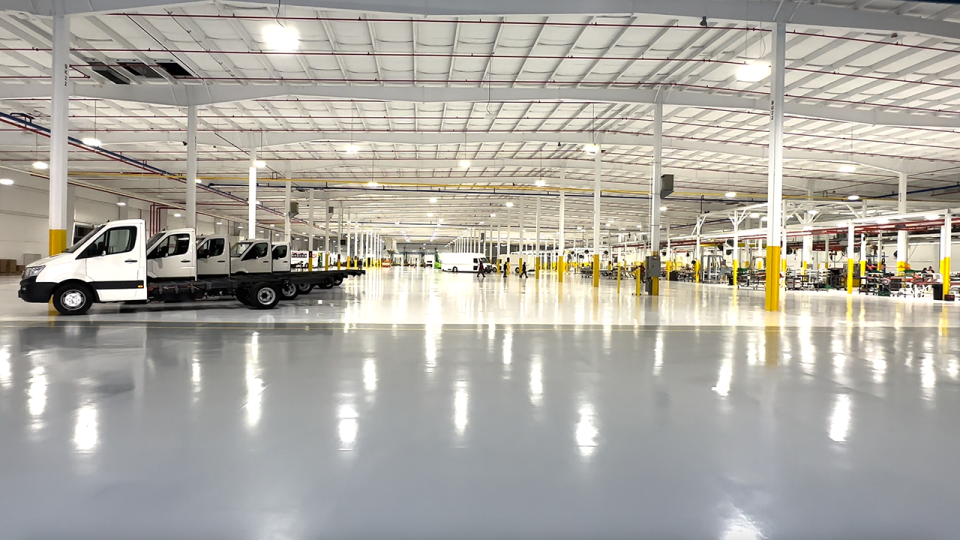
With just $62.4 million in cash on its balance sheet, Workhorse Group desperately needs shareholders to agree to dilute their holdings by authorizing a near doubling of shares in the electric vehicle maker.
Workhorse is using a proxy solicitation firm to corral votes in favor of the measure. It needs 50% plus one of all outstanding shares to pass the measure. Workhorse is seeking to increase the number of authorized shares to 450 million from 250 million in a special shareholder meeting on Aug. 28.
It is the same gambit electric truck maker and hydrogen distributor Nikola Corp. concluded last week after twice falling short of the votes needed for passage.
“I want to be clear about what this means and why we are looking for the authority to issue additional equity,” CEO Rick Dauch said Tuesday on the company’s second-quarter earnings call. “Simply put, we will use the additional equity to obtain additional financing that we will use to fund our business. Period. End of story.”
Barriers to passage
Workhorse’s task is more difficult than Nikola’s because it needs a greater percentage of proxies to pass its measure. Nikola benefited from a regulation change in Delaware, where it is incorporated, that lowered the threshold for passage to a majority of those voting on the proposal rather than a majority of all shareholders.
A further complication is that Workhouse has a comparatively small number of institutions that hold its stock. BlackRock Inc. is its largest investor with 5.47% of outstanding shares. The Vanguard Group holds 4.2%. Company officers including Dauch hold 3.15%.
Most other shares are held by retail customers, who have bid company shares as high as $40 and to less than $1 in recent years. Workhorse at times has been targeted by short sellers seeking to profit when the stock price falls. From time to time, Workhorse has been a meme stock driven by internet chatter on sites such as Reddit.
Much of that occurred before Dauch arrived two years ago as CEO. He systematically reviewed every aspect of the business, canceled production of the C-Series electric van because of durability issues, upgraded Workhorse’s assembly plant in Union City, Indiana, and paid off a large hedge fund loan to clean up the balance sheet.
Dauch also ordered liquidation of Workhorse’s stake in Lordstown Motors, which has since filed for bankruptcy protection.
“Our goal in all this is to protect our shareholders and build a bridge to long-term growth and shareholder value creation,” he said.
2nd-quarter challenges
Workhorse posted about $4 million in revenue in the second quarter compared to practically zero in the same period last year when it suspended production to switch to new models. The cost of sales increased to $8.4 million from $3 million in the same period last year. Analysts expected revenue closer to $15 million.
The Q2 revenue missed because of testing delays on future products and a bureaucratic challenge in collecting vouchers that reduce the cost of its trucks to customers in California.
Workhorse sells versions of Canada’s GreenPower Motors Co. EV Star vehicles as the W4 CC custom chassis and W750 Class 4 electric step van. It received 60 purchase orders during 2Q and delivered 42 trucks, including the company’s first W750. It delivered 10 trucks in Q1.
Vouchers under the California Hybrid and Zero Emission Bus Voucher Initiative Project (HVIP) are assigned to GreenPower. Workhorse is working to get those reassigned and to get its versions listed as qualifying vehicles.
Workhorse can reach gross margin positive financially once it sells 300 trucks. That may take longer after the Sharonville, Ohio-based company cut full-year revenue guidance to between $65 million and $85 million from between $75 million and $125 million.
“If we don’t get [HVIP voucher money], I’d say there’s some risk to us in the low end of the guidance,” Dauch said.
Workhorse lost $23.02 million, or 12 cents a share, compared to a loss of $21.16 million, or 13 cents, in the year-ago period. Per-share losses narrowed because Workhorse increased its share count to 159.11 million from 85.66 million.
Longer-than-expected certification testing may delay the W56 chassis cab and step van production launch by about 45 days, Workhorse said in a news release.
Path to meaningful orders
Big customers like UPS, FedEx and DHL are interested in Workhorse products, Dauch said. But they want to test production-ready versions before placing orders.
“The smaller fleets are moving with a little bit of wariness,” he said. “They are not convinced about EVs. They have range anxiety issues. And they don’t like the cost.” Completing the process for getting state incentives is another barrier.
State and local government fleets represent a target-rich environment.
“The money is flowing from the federal government down to the states to these entities. And they’ve been tasked to start electrifying their fleets,” Dauch said.
All this makes winning the right to increase the number of shares all the more critical.
“We’re one of the few EV companies that has a world-class factory that has products running down the production line,” Dauch said. “We are building a rock-solid company that’s going to be here to stand the test of time.”
Workhorse shares (NASDAQ: WKHS) closed at $1.10 Tuesday, down 6.78%.
Editor’s note: Updates with Q2 deliveries and closing stock price.
Related articles:
Workhorse Group Q1 loss grows but makeover nears completion
Workhorse narrows loss but misses on Q4 revenue and earnings
Nikola clear to increase share count — thanks to Delaware rule change
Click for more FreightWaves articles by Alan Adler.
The post Cash-starved Workhorse Group seeks to create new shares appeared first on FreightWaves.